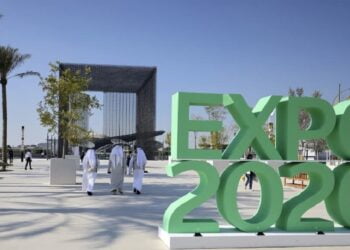Iraqi unrest revolves around one character; Sadr incites the riots and de-escalates the tensions after bloodshed. The show of power led Baghdad into a state of war.
According to the local sources in Baghdad, Iraqi security forces lifted the statewide curfew in the country. The lift was announced following a demand for his followers to leave the streets by prominent Shiite cleric Moqtada al-Sadr.
Mr. Sadr apologized to the Iraqi society and instructed his supporters to stop protesting in the city’s central regions. Only after approximately 2 days of bloody battles between opposing Shiite Muslim factions that resulted in 20 deaths did Sadr step in.
In remarks that were made in state TV, Mr. Sadr asserted that “this is not a revolutionary because it has lost its peaceful nature.” He further claimed that “the spilling of Iraqi blood is the deadline,” he said.
Iran has closed all air and lad entries to Iraq following the escalations on Monday. Deadly Iraqi unrest erupted after Sadr’s statement explaining he would leave politics.
The strongly protected Green Zone was the target of four rocket launches, according to the Iraqi military. Armed battles broke out overnight between a group loyal to Sadr movement and Iraqi security ground troops, which serve as the capital of Iraq.
The turmoil and “curfew” in Iraqi towns, according to Iranian official media, were to blame for the border restrictions. It advised Iranian citizens not to travel to the country and warned Iranian Shia pilgrims there not to move on to other places.
In the meantime, Millions of Iranian nationals were getting ready to travel to Iraq for the yearly Arbaeen pilgrimage to the Shiite shrines when. Besides Iran, a number of other neighboring countries have also halted the transportations to Iraq asking residents to evacuate the Iraqi nation.
Iraqi Unrest; Sadr Decides
Due to the escalation of deadly street fights between competing Shia factions, the local outlets also urged those who wanted to visit Iraq to postpone their arrangements. Iraq and Kuwait, a small Persian Gulf Arab monarchy, are separated by a 158-mile borderline.
Due to the ongoing instability in Iraq, Dubai’s protracted airline Emirates halted all flights to the Iraqi capital. The airline claimed to be actively watching the issue. Potential resume of the flights on Wednesday was not clarified.
The cement barricades outside the presidential palace were knocked down by rioters who supported Mr. Sadr. They rushed to the Green zone on Monday after Sadr announced his resignation. The group also broke through the palace doors and walls. Many raced inside the palace’s opulent chambers and marbled hallways, a major gathering spot for foreign and local elites.
In reaction to the Iraqi unrest, the military forces of Iraq issued a statewide curfew and the interim prime minister halted cabinet meetings. Numerous demonstrators were hurt, according to health workers, by gunshot, tear gas, and violent conflicts with riot police.
The result of elections last year that threatened to marginalize the competing Shiite blocs affiliated with Iran, Sadr’s Shiite bloc came out on top.
However, Sadr’s attempts to create a government have subsequently failed in the face of resistance from competing blocs. The follow-up of events trapped the nation in a standstill of politics. In a blatant display of power, Sadr ordered his whole political group to leave parliament two months ago.
Mohammed Shiya al-Sudani was proposed as the leader of new government by the Coordination Framework, the strongest Shiite alliance in Iraqi legislature. Two months after her resignation, analysts believe that Sadr is following a strategy back to power through populist strategies like an Iraqi unrest.








